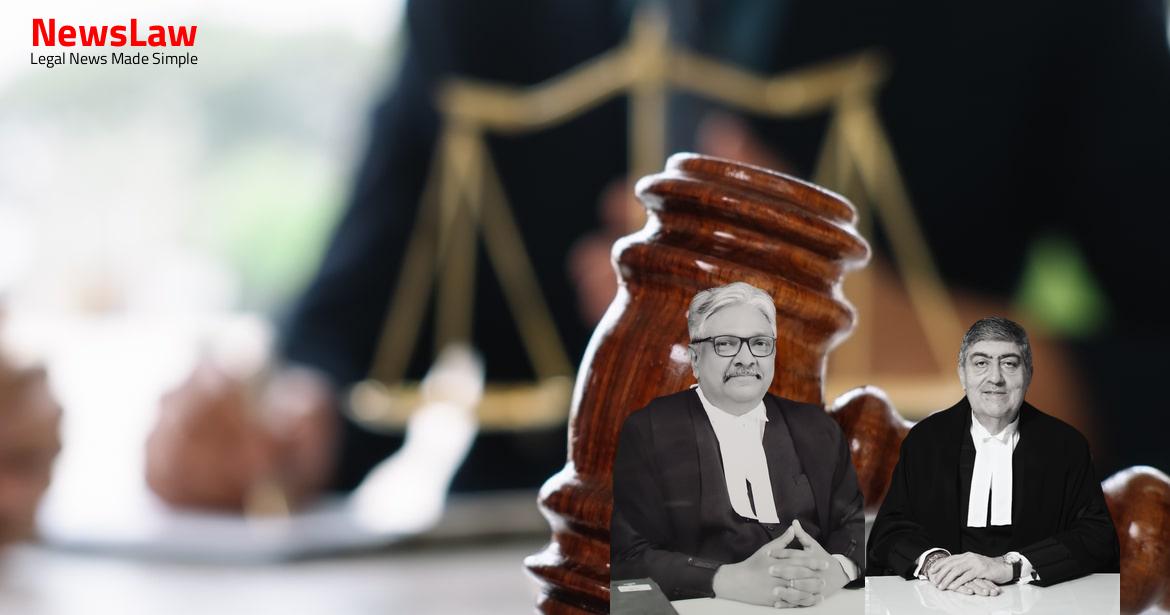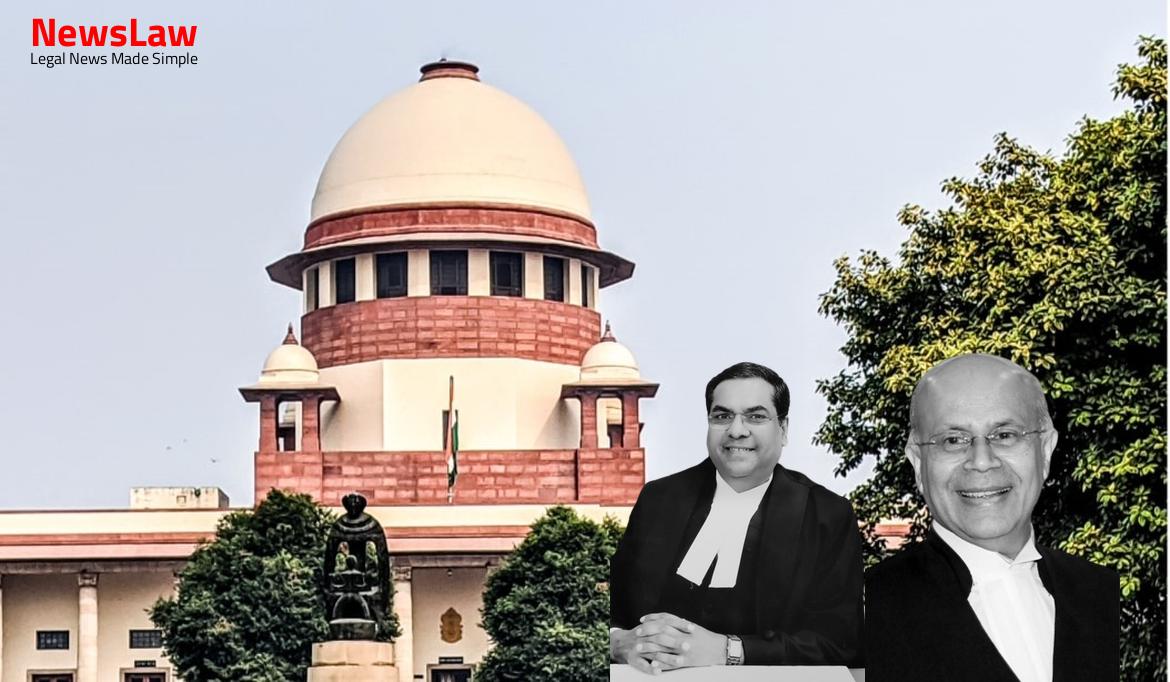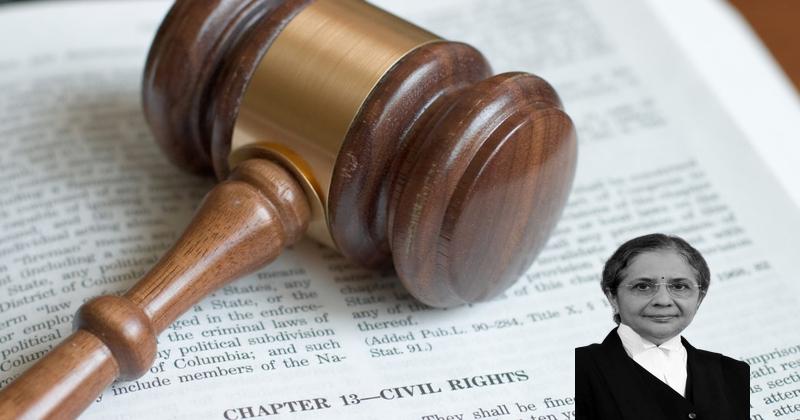A significant legal case has been resolved by the Supreme Court of India regarding conflicting claims over property rights in Mollans and Bainguinim. The judgement addresses various complex legal issues surrounding adverse possession, joint ownership, and the applicability of the Portuguese Civil Code. Stay informed about the detailed analysis and implications of this crucial decision.
Facts
- The plaintiffs filed a suit for various reliefs regarding their share in the properties Mollans and Bainguinim.
- They sought a declaration that they are entitled to 1/8 share in Mollans and 1/4 share in Bainguinim.
- They also requested the cancellation of a Deed of Partition executed by certain defendants which excluded the plaintiffs.
- The plaintiffs demanded their share of income in proportion to their rightful ownership since 1979, from defendants 1, 3, and 5.
- A decree for partition of the properties to separate the plaintiffs’ rights and shares was also requested.
- Rectification of survey records to include the plaintiffs’ names and resurvey of the properties was sought.
- Finally, a permanent injunction was requested to prevent the defendants from dealing with or disposing of the properties.
- Defendants 1 to 6 and defendants 30 and 31 were specifically mentioned in the injunction request.
- The settlement deed dated 21.01.1919 conferred title on Gones for the property covered by the sale deed dated 17.11.1915, with a payment of Rs. 1000/- not related to consideration.
- The First Appellate Court found that the trial court misinterpreted parts of the settlement deed, clarifying that ‘transfer of half the properties’ indicated transfer of title, not registration/mutation.
- The benefit of reimbursement in the deed was meant for Gones to fulfill the condition within a reasonable time, not unlimited.
- Oral evidence presented indicated that the plaintiffs had no right to the property mentioned in the deed of sale dated 17.11.1915.
Also Read: Supreme Court Judgment on Single Till Mechanism for HRAB Calculation: A Comprehensive Analysis
Issue
- The High Court admitted the appeal based on substantial questions of law.
- The questions of law include issues regarding ownership of properties Mollans and Bainguinim, interpretation of the Deed of Declaration, the nature of relief sought in a suit for declaration of share in joint property, and the validity of the suit considering the time frame for filing.
- The court will evaluate whether the Deed of Declaration dated 21.1.1919 was an agreement to transfer ownership to Gones or merely an acknowledgment of ownership.
- The court will also consider the interpretation of the First Appellate Court regarding the transfer of rights in the properties Mollans and Bainguinim to Gones.
- Another key aspect is determining if the suit abated due to the non-inclusion of all necessary parties and whether such an objection was raised timely.
- Additionally, the court will assess the finding of the First Appellate Court that the suit was barred by limitation, especially when it contradicted the initial court’s decision.
- The court will address the scope and validity of the suit based on the pleadings and evidence presented.
Arguments
- Gones did not object at the given time, as required by law, during the inventory proceedings upon the opening of the inheritance.
- The respondents argue that certain documents related to immovable property must be registered under the Civil Code.
- The settlement deed dated 21.01.1919 acknowledges Gones’ title, regardless of his participation in the inventory proceedings.
- The defendants point to evidence showing Gones was part of the family council during the inventory proceedings on the demise of Suriaji.
- The defendants believe Gones should have objected to the inscription in 1937 if he disagreed with the property listings.
- The claim of adverse possession is considered viable by the defendants if proven to be over 12 years.
- The Appeal Court reversed the trial Judge’s decision, mentioning that the Company had abandoned its right to challenge the forfeiture.
- The Attorney General contested the grounds on which the Appeal Court based its decision against the Company.
- Evidence of Defendant No 5 was not produced, potentially weakening the defendants’ case.
- The intervention of Gones as vogal is disputed by the appellants.
- The respondents contend that the concept of trust does not exist in the civil law system that prevailed in Goa under the Portuguese Code.
- The learned Attorney General argues that since no plea of abandonment had been raised in prior proceedings, it should not have been allowed to be brought up at the appeal stage.
- Mere waiver, acquiescence, or laches which does not amount to abandonment of right or estoppel cannot disentitle a person from claiming relief in equity in respect of executed interests.
- The appellants argue that since the High Court found Gones had title in the property, the suit must be decreed.
- The appellants further contend that the rights of Gones were extinguished under Article 505 read with Article 535 of the Portuguese Code.
- The respondents stress that the sale deed was executed in favor of Suriaji and Laxmi.
- They cite the case of Dilboo (Smt.) (Dead) by Lrs. and others v. Dhanraji (Smt.) (Dead) and others to support their argument regarding registration of documents and commencement of limitation.
- The respondents point to the judgment in Vishram alias Prasad Govekar and others v. Sudesh Govekar (Dead) by Legal Representatives and others to argue against adverse possession.
- They also rely on the law laid down in Taherakhatoon (D) by Lrs. v. Salambin Mohammad to suggest that discretion should not be exercised in favor of the appellants due to the long lapse of time and developments since the documents of 1913, 1915, 1919, and 1925.
- Finally, Eurekha Builders and others v. Gulabchand, S/o Veljee Dand Since Deceased By Legal Representatives and others is cited to support the argument that rights, including title, can be extinguished by the passage of time.
Also Read: Selection and Appointment of Judicial Officers in Himachal Pradesh
Analysis
- Admittedly, the Portuguese Civil Code continued in the Union Territory of Goa, Daman and Diu by virtue of Section 5 of the Goa, Daman and Diu (Administration) Act, 1962
- The Court referred to various judgments in relation to inventory proceedings and the nature of suits
- Emphasis was laid on the need to prove the date when the defendant’s possession became adverse to the plaintiff’s title
- Various cases were relied upon to establish the principles of adverse possession, proof of facts, and the inconsistency between adverse possession and title pleas
- The Court discussed the concept of estoppel, abandonment of rights, and the validity of forfeiture based on principles of estoppel and laches
- Legal principles regarding adverse possession, resulting trusts, and joint possession among co-owners were discussed and applied in the context of the case
- The applicability of the Limitation Act, the distinction between substantive and procedural law, and the absence of limitation for certain types of suits were highlighted
- Relevant judgments and legal principles from different cases and Acts were cited and explained to support the conclusions of the Court
- Justice S.R. Das held that the specific part of the judgement must be considered alongside other relevant factors.
- The judgement emphasized the importance of looking at the entire context and not focusing solely on the PRE_NOT_RELIED part.
- It was reiterated that a holistic approach must be taken in interpreting the law and reaching a decision.
- The specific part of the judgement was not considered in isolation but in conjunction with other relevant aspects of the case.
- Contracts for immovable properties must be in writing and with the consent of the wife if applicable.
- Properties belonging to a third person cannot be delivered unless their right is proven.
- Article 535 states that obligations become void after 20 years if not demanded and the obligant is in good faith, or after 30 years regardless of good faith.
- Good faith in negative prescription is defined as ignorance of the obligation.
- Article 1548 outlines the rules for a simple reciprocal promise of purchase and sale.
- Article 2078 requires properties belonging to a third party or with preferential inheritance to be listed separately with respective documents.
Decision
- The parties seek to have the decree confirmed.
- The issue of estoppel, abandonment, and waiver are referenced in certain decisions.
- Further examination of the facts is required to decide on the issue.
Case Title: PRABHAKAR GONES PRABHU NAVELKAR . Vs. S.S.PRABHU NAVELKAR(D) BY LRS..
Case Number: C.A. No.-010501-010502 / 2014



